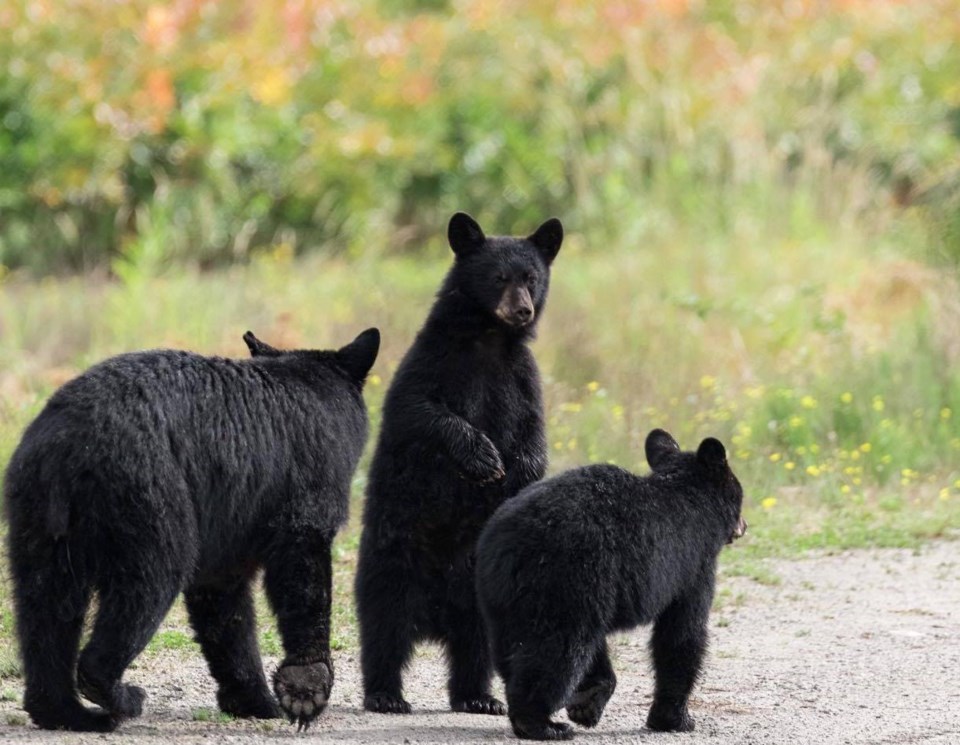One thing we can be certain of this Halloween in Whistler, and around B.C., is that young humans won’t be the only ones roaming our neighbourhoods in search of spooky snacks and beautifully carved pumpkins.
Black bears are curious, and juveniles are especially interested in the sights and smells around them. Deep in the wilderness, this curiosity serves them well as they explore new food sources. Close to humans, however, curiosity can be deadly for the bears. Be sure not to invite a bear to your door by displaying yummy food outside. Keep your pumpkins and treats inside your home.
OTHER REASONS WHY BLACK BEARS ARE IN OUR COMMUNITIES
This may be new information for you—bears seek safety in areas occupied by humans. As bear-behaviour expert Ellie Lamb says, “It’s the vulnerable population of black bears that live around our communities. This population includes mothers, cubs and adolescents. They are here because they trust us to keep them safe from the larger, more dominant bears.”
Young bears are curious, goofy, inexperienced and full of energy. And much like young humans, they are particularly partial to sweet treats.
Another reason why we see bears is that they often have no choice but to travel through our neighbourhoods in search of natural foods. Don’t summon them to stay! We have a year-round responsibility to secure or remove food sources around our homes. Failure to do so often results in bears needlessly being killed, and it can fuel bear activity over the winter.
BLACK BEARS AND WINTER
Because few natural foods are available in winter, bears conserve energy and enter a state of dormancy. Bears remain inside their dens without the need to drink, eat, or go to the bathroom for as long as six months.
Vulnerable bears may den mere metres from trails in an effort to remain safe. Females often choose to live on the periphery of urban environments—they can be especially timid. While a mother black bear may choose to defend her cubs, her instinct is to retreat rather than confront.
Feeding birds and failing to keep garbage and organics secure is changing the natural behaviour of bears. Some male bears will not den when they are provided with nourishment over the winter. This is one of the reasons why bears are killed during the winter when, in theory, they should be dormant.
OF BIRDS AND BEARS
Bird seed and suet are strong bear attractants. Black bears evolved in forested areas and are agile climbers. Even the biggest black bear can scale a fence with impressive agility. These dexterous animals have a long reach—it is practically impossible to hang a feeder where a black bear cannot access it.
Their keen sense of smell can even source strewn nuts and seeds. Bears are not nocturnal—bringing feeders inside at night is not the solution. Instead, place a small amount of seed on a plate when you are home to enjoy the birds and bring leftovers inside.
TIME TO LET THE BEARS SLEEP
Encourage bears to den by not leaving food outside. If they visit your property, leave your phone alone (don’t worry about getting photos!) and move them on. From a safe place (deck or open window), use a loud, firm tone and tell the bear to, “Go away!” Clap your hands or trigger your car alarm. Be persistent and make them feel unwelcome.
Bears are vital members of our wider community. We can safely coexist if we make the effort to set boundaries and learn more about their behaviour.
Luci Cadman is certified in bear safety and awareness, and is a certified bear-viewing guide with the Commercial Bear Viewing Association of British Columbia. She has been the education coordinator for the North Shore Black Bear Society for five years. While bears remain Luci’s first love, she expanded the Society’s educational outreach in 2018 to include coyotes, bobcats and cougars.




